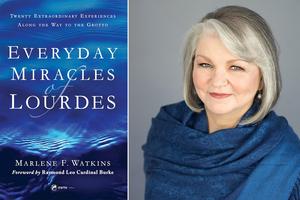Getting Gifts Opens Your Eyes — Giving Gifts Opens Your Heart
COMMENTARY: The simplest gift, when accompanied by the right sentiment, is a gift that cannot be measured in dollars and cents.

Some time ago, when I was convalescing, my son and his wife cared enough about my condition to present me with a gift. It was a book, which I think is the ideal gift because it can be opened again and again.
They went through the trouble of finding a book on philosophy which, these days, is not easy to find. Not knowing a great deal about modern philosophers, the author of the book they chose was, oddly enough, dead set against giving gifts. Turning to page 684 of Jean-Paul Sartre’s hefty Being and Nothingness, we read the following:
“Gift is a primitive form of destruction ... generosity is, above all, a destructive function. The frenzy of giving which comes over certain people at certain times is, above all, a frenzy of destruction. ... To give is to enslave. It is to appropriate by destroying and to use the destruction to enslave another.”
Whew!
We do not expect any more from a philosopher who states that “Hell is other people.” The essence of the gift, however, is in its intention. And it was the intention that I cherished. We could laugh at the book’s astonishing content. Ayn Rand was also fiercely opposed to giving, especially at Christmas time. She and Sartre rank at the very bottom of my list of favorite philosophers. They are a puzzle to me.
The concept of the gift releases a flood of interesting thoughts. A gift is far more than the transfer of something from one place to another. The mere fact that I go into a store to buy a gift does not confer additional value on it. Nor does my small sacrifice in purchasing it endow it with the status of its being a gift. What counts is the intention to please another person.
The gift should not be seen as just another possession added to his other possessions. It carries with it a sign of friendship and may also hint at a cherished memory. It requires some degree of spiritual insight to see the gift precisely as a gift, for its value as a gift is not contained in the material gift itself. A gift is not a gift until it is given.
I recall with undiminishing delight a gift that my senior high school students gave me at the end of my term. It was a rose. But it was accompanied by a poem:
“We offer you a rose at this time when you depart. For you it is a flower, for us it is our heart.”
The simplest gift, when accompanied by the right sentiment, is a gift that cannot be measured in dollars and cents. To give, in the best sense, is to devote or consecrate oneself to another. Life must be empty for those who can neither give nor receive. The gift humanizes people. The Magi had the right idea.
I very much like what Gabriel Marcel writes concerning a child’s gift. “Think of a small child,” he writes, “who brings you three bedraggled dandelions it has picked by the wayside; it expects you to admire them, it awaits from you a recognition of the value of its gift; and if you lose it, or put it down carelessly, or do not stop talking [so that you can] express your delight, you are guilty of a sin against love.”
The naïve and touching spontaneity of the child cannot be ignored. The child has an innate appreciation of the value of a gift and wants to put giving into action. Adults are obliged to admire and encourage this practice.
The acceptance of a gift elicits gratitude. Consider the words of G. K. Chesterton:
“Children are grateful when Santa Claus puts in their stockings gifts of toys or sweets. Could I not be grateful to Santa Claus when he puts in my stockings the gift of two miraculous legs? We thank people for birthday presents of cigars and slippers. Can I thank no one for the birthday present of birth?”
Critics of giving claim that to give is to lose. Christmas giving can be, in a monetary sense, quite costly. Giving, however, is not a depletion. It cannot be since true giving enlarges the soul. I am a better and more complete human being when I give to others. In this sense, it is better to give than to receive.
There can be no real community without collective giving. The expression “give until it hurts” is a misnomer. We give until it helps, both ourselves as well as others. “I have found,” says the poet Maya Angelou, “that among its other benefits, giving liberates the soul of the giver.”
Ebenezer Scrooge’s conversion is from a miserable miser to a happy giver. The theme of Victor Hugo’s classic, Les Misérables is, “Life is to give. ... To love another person is to see the face of God.”
To be open to a gift from others is a disposition that allows us to see that everything in God’s creation is a gift. We say thank you to the generous God who has lavished us with gifts. Christmas, first and foremost, is about a gift of illimitable value. It is God the Father giving his Son to us in the form of a babe who will spend his life on earth giving himself to others. To be a generous person is to live in a Godlike manner.
- Keywords:
- christmas gifts
- gifts of the holy spirit

















